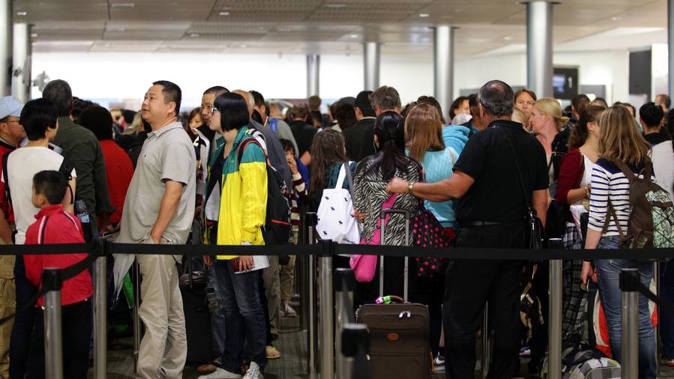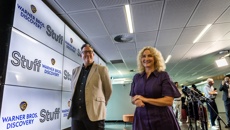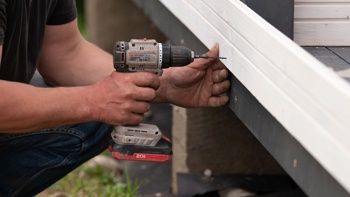
The various regional wars continue to spawn a wave of unlawful immigration. That all started a decade or so ago as the Syrian people sought safety in foreign lands. But it has escalated as hordes of people from the Middle East, Africa, Ukraine and even South America seek out a new place to call home.
This time around it seems that many of the people on the move are more organised than before, and they will most certainly use the current momentum, and the unprecedented levels of support, to advance their cause.
When we see the television pictures, we see long queues of women and children, each carrying the meagre belongings they can manage, as they evacuate their homelands. We’re told that they’re fleeing their war-torn communities. They appear as a shambolic rabble of hopelessness, variously searching for somewhere else to go.
But as the refugee crisis continues to build in Europe, we don’t see those women and children in the pictures on the other side of the ocean. We see young men. Hordes of them. Arriving en masse in even the most substantial of European countries. They’re dressed in black and carrying backpacks. They’re not a disorganised rabble anymore. Instead, they have access to big boats and, it would appear, a clear plan.
The same thing is happening in the USA. Whilst the streets are filled with pro-Palestinian protestors celebrating a cause far away, under their noses South American asylum seekers are traveling north in big boats, and hitting the Californian coast at full speed, before jumping and running to the anonymity of the streets and shopping centres a few hundred metres away. They’re organised. And the America, that has tried so hard to protect its borders over the decades, has no idea of who is now in their country, what their background is, or what their intentions are.
Back in Europe, the result is that there are now millions of young men, illegal immigrants, spread across Europe. They’re everywhere, including Germany, Sweden, France and the United Kingdom. Crime waves are common and crimes against women are increasing, as they seek to impose their own particular brand of havoc. When you import a people, you import the best and the worst of their society too.
As populations swell, the pro-Palestinian protests gather more supporters, and the Jewish people, many being families who have lived in their communities in England, Germany or Brussels for a century or more, are having their freedoms curbed.
The reaction of the European countries is now at a critical point. In Britain, parliament recently passed legislation to enable the Rwanda policy, which will see unwanted immigrants and asylum seekers flown to Rwanda in Africa to resume their lives. In Greece, they simply turned back the asylum seekers. Guess what? They stopped coming.
But those tactics put pressure on other centres. Those immigrants escaping the UK’s Rwanda plan, have turned to Ireland, where small county communities such as Newtownmountkennedy have seen local people peacefully protesting the decision to house large numbers of refugees in their small and peaceful communities. The protesters, representing a cross section of law-abiding people typical of what any small town might look like, have been physically pushed aside by police making way for the construction gangs who will create the new camps. As with the London Police mentioned above, Irish Police are limiting the freedoms of locals to make way for the illegal immigrants from troubled foreign lands.
Chants of “Ireland is full” can be heard as the locals attempt to stand up for the community they know, the community they want to maintain. Many are asking “who is organising and paying for governments to turn against their own people”?
It’s easy to feel sorry for those living the nightmare as a genuine peace-seeking refugee, seeking a new life, at a time when no country wants you. But imagine living in a small village with 2,500 people and having 160 asylum seekers forced on your community. You can understand their pain too.
Meanwhile, those escaping the Middle East and Africa will continue to build their numbers in Europe. With those numbers will come growing families, communities, and a new sector of society, often revolving around a local place of religious worship. You’d like to think it could happen peacefully, a genuine opportunity for displaced people to start a new life. But it doesn’t feel like that.
As the conflicts in Ukraine and Gaza bookend a frightened Europe, the risks of a regional war look increasingly likely. As Iran joins the battle against Israel, and the prospect of Western allies supporting Ukraine grows ever more likely, a broader conflict seems more probable than at any time in the lives of our generation.
But this time is different. This time there are millions of young men, men from the Middle East and Africa, who have now stationed themselves in Europe’s heartland. Men who have grown up in war torn countries. Men who grew up in an environment where our way of life is frowned upon. And men who will likely side with the invaders rather than the defenders, in the event of a regional war.
There are lessons for New Zealand in the immigration chaos. Fortunately, we are a long way away, and it’s difficult to get here. Our distance, so often a handicap, is currently an advantage. As the numbers of those displaced by war on the other side of the world, inevitably increase, pressure will again come on us to take increasing allocations of refugees.
Unlike many of the countries invaded by illegal immigrants over the last few years, our physical separation from the rest of the world, and the oceans that surround us, provide us with a choice. We should take the opportunity to pause, consider the lessons from our allies on the other side of the world, and take our own decisions with great caution.
Fred Dagg once sang, “we don’t know how lucky we are”. It is up to our very own Foreign Minister, and the government he represents, to keep it that way.
Bruce Cotterill is a company director and adviser to business leaders. He is the author of the book, The Best Leaders Don't Shout, a regular NZ Herald columnist and host of the NZME’s podcast, Leaders Getting Coffee. www.brucecotterill.com
Take your Radio, Podcasts and Music with you









